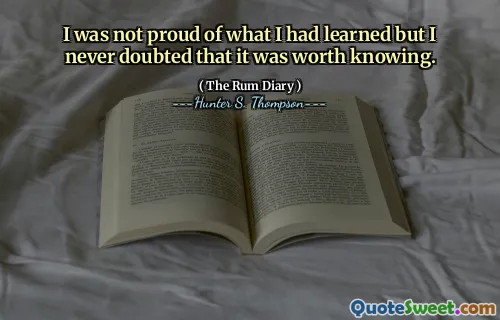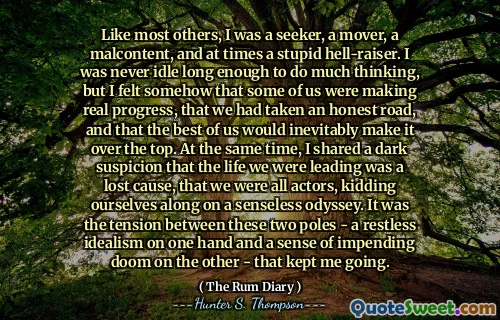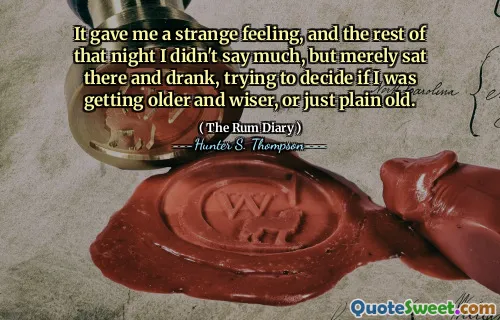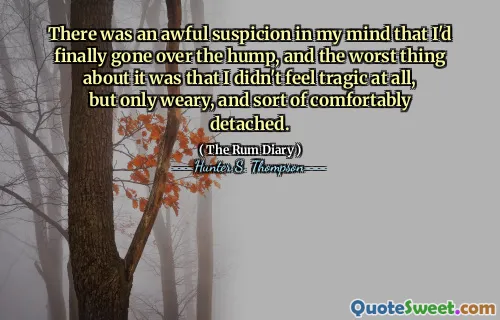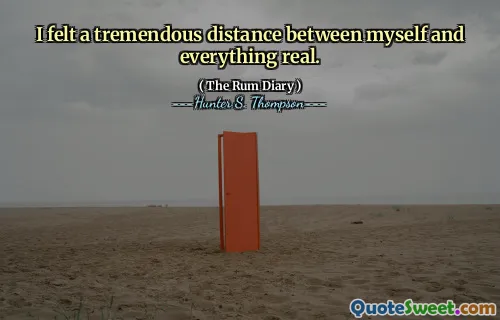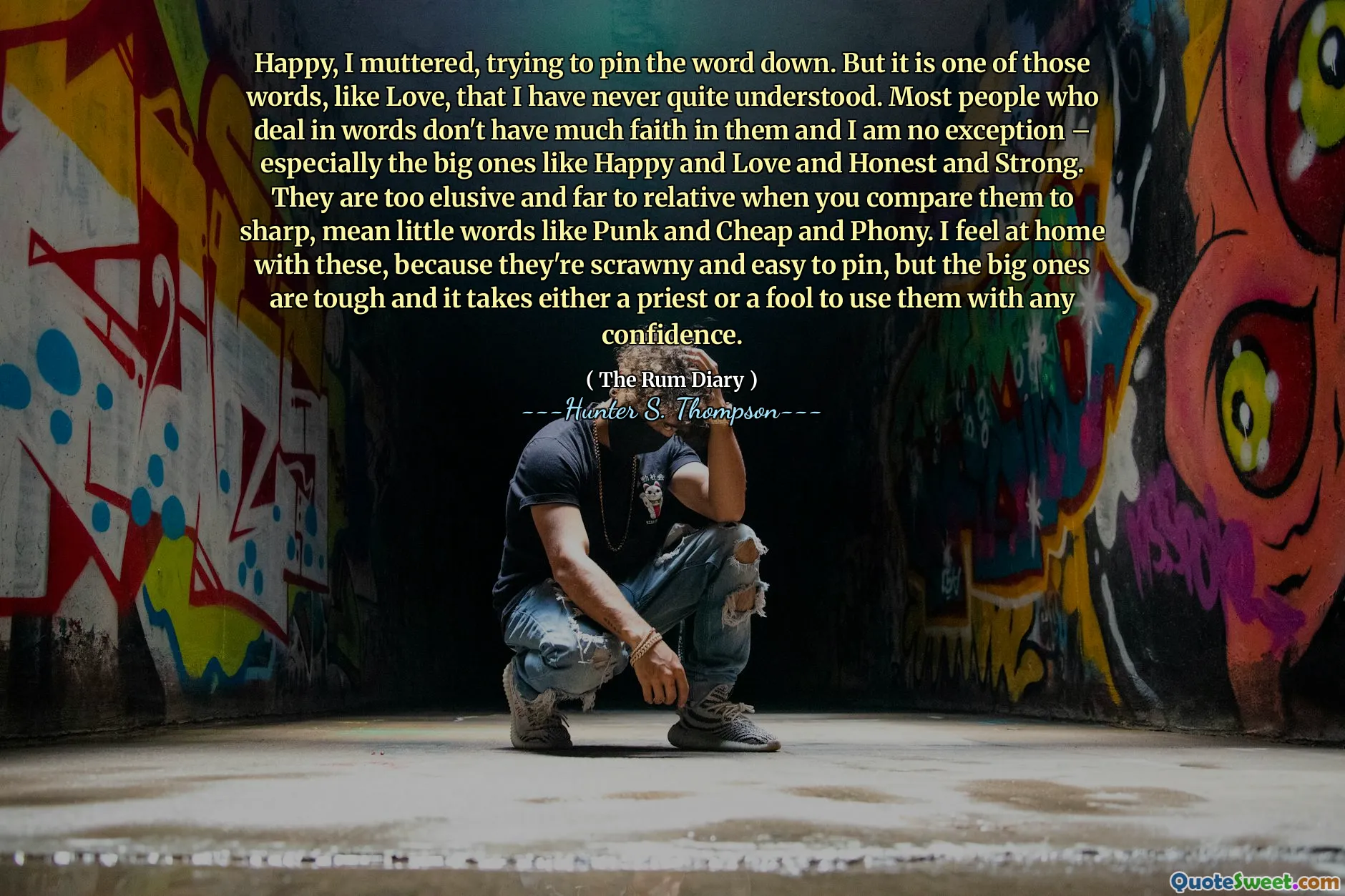
Happy, I muttered, trying to pin the word down. But it is one of those words, like Love, that I have never quite understood. Most people who deal in words don't have much faith in them and I am no exception – especially the big ones like Happy and Love and Honest and Strong. They are too elusive and far to relative when you compare them to sharp, mean little words like Punk and Cheap and Phony. I feel at home with these, because they're scrawny and easy to pin, but the big ones are tough and it takes either a priest or a fool to use them with any confidence.
The narrator grapples with understanding the concept of happiness, feeling it is as elusive as love. He expresses skepticism toward significant words, suggesting that they often lack concrete meaning compared to simpler, more harsh words. This uncertainty leads him to favor terms that are straightforward and definitive.
He reflects on the complexity of meaningful words like happy, love, honest, and strong, which seem to carry too much weight and trauma. In contrast, he finds clarity and familiarity in blunt terms such as punk and phony. This creates an awareness of how challenging it can be to engage with profound ideas compared to the simplicity of smaller, more precise words.
